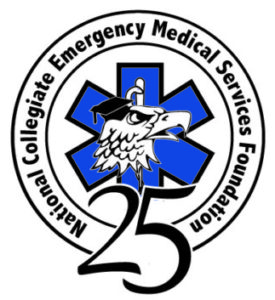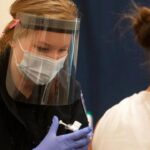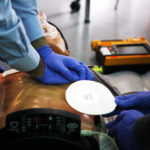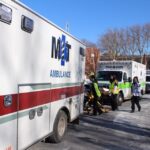National Collegiate EMS Foundation
 Founded in 1993, the National Collegiate Emergency Medical Services Foundation (NCEMSF) is a 501(c)(3) non-profit organization committed to scholarship, research and to creating a safer, healthier environment on college and university campuses through the support, promotion, and advocacy of campus-based EMS. NCEMSF is committed to the advancement of existing response groups and assisting in the development of new response groups. NCEMSF serves as an umbrella organization supporting its approximately 250 constituent member colleges and universities in providing campus-based EMS. NCEMSF provides a robust network of supportive professionals and alumni as well as a forum for education and communication between its constituent members.
Founded in 1993, the National Collegiate Emergency Medical Services Foundation (NCEMSF) is a 501(c)(3) non-profit organization committed to scholarship, research and to creating a safer, healthier environment on college and university campuses through the support, promotion, and advocacy of campus-based EMS. NCEMSF is committed to the advancement of existing response groups and assisting in the development of new response groups. NCEMSF serves as an umbrella organization supporting its approximately 250 constituent member colleges and universities in providing campus-based EMS. NCEMSF provides a robust network of supportive professionals and alumni as well as a forum for education and communication between its constituent members.
Partnership with JCEMS
On its 25th Anniversary, NCEMSF formed a partnership with JCEMS to promote collegiate EMS scholarship and to spark immediate and sustainable progress in the young, growing field of campus-based prehospital emergency care. NCEMSF serves as the official sponsor and parent foundation of JCEMS and provides networking, administrative, and financial support. JCEMS and NCEMSF collaborate to help guide collegiate EMS providers and organizations in the development of research projects and the production of publishable work.
To ensure rigor and independence in the editorial process, the JCEMS Editorial Board maintains editorial autonomy. The NCEMSF Board of Directors has no authority to determine the content to be published in JCEMS, and members of the NCEMSF Board of Directors are not eligible to serve on the JCEMS Editorial Board.





